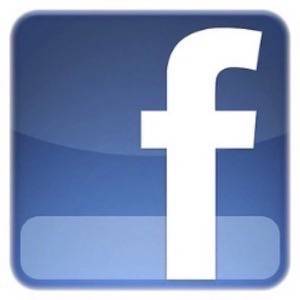From here on out, Facebook will not be measured by the number of registered users, the number of photos being uploaded every minute or the number of likes and comments left by its more than 900 million members.

Facebook became a publicly traded company at 11:30 a.m. Eastern Friday, and from here on out, Facebook will first and foremost be measured by its share price.
Founder Mark Zuckerberg rang the opening bell of Nasdaq, where his company will be listed under the symbol FB. The bell, which Zuckerberg rang remotely from the company’s Menlo Park headquarters, was rigged to automatically update his Facebook status to say he had listed a company on the exchange.
The sheer volume of orders for the stock delayed the start of trading by 30 minutes, as traders were flooded with change orders. Zuckerberg had been expected to make comments after U.S. markets opened at 9:30 a.m. Eastern but had not issued a statement by the time Facebook shares started trading two hours later.
Facebook’s share price was set at $38 late Thursday night but quickly rose to $42.99 after 421 million shares of Facebook started trading. [UPDATE: After that increase, the share price dropped back to its initial sale price where it hovered for the rest of the morning.] Analysts and investors were expecting a day of high volume and volatility, as early investors cashed in shares, and people getting their first crack at owning Facebook placed orders through retail brokers. Nasdaq IT officials were on a morning-long conference call to make sure the volume – which is estimated to be at least 500 million shares traded – did not crash the exchange’s order-processing system.
It was the third-largest initial public offering in history, netting $16 billion and valuing Facebook at $104.2 billion. It was also arguably the biggest tech story on Wall Street since Google went public in 2004.
“The more we talk about it, the more people at home are going to say ‘I want to own a piece of Facebook’ and not just go on Facebook,” CNBC analyst Jim Cramer told viewers just after Nasdaq opened at 9:30 a.m. ET Friday. “It could overwhelm the market – there is Facebook, which is fabulous, and there is everything else, which is the worst market we have seen in years.”
In spite of grim financial news for the broader markets – and repeated warnings from Cramer that naive investors would run up the price of Facebook – the IPO had a celebratory feel to it, coming a decade after the dot-com bubble burst and five years into a global recession.
Anchors on financial news networks wore hoodies over their shirts and ties in deference to Zuckerberg’s trademark outfit. One CNBC commentator called the buildup to the start of trading “the business news equivalent of a car chase.” A beaming Zuckerberg was shown flanked by employees, including COO Sheryl Sandberg, as he rang the Nasdaq opening bell in the early-morning hours following the company’s 31st hackathon. Television reporters camped outside the campus gave a blow-by-blow account of what was happening at Facebook at dawn local time, including updates that employees stayed up all night binging on Red bull, working on code, playing roller hockey, ordering Chinese food and making runs to In-N-Out Burger.
Still, all of the optimism was tempered by persistent and familiar fears that the company may be overvalued. Facebook opened with a valuation 100 times greater than its earnings for the previous 12 months. If Facebook stumbles, it will have a far-reaching ripple effect across the tech sector and the broader economy.
“Facebook is the component that will make or break the IPO market,” Scott Sweet, of IPO Boutique, told Dow Jones. “It is so powerful and there is so much demand that if the IPO didn’t work, the IPO pipeline would immediately freeze.”
















